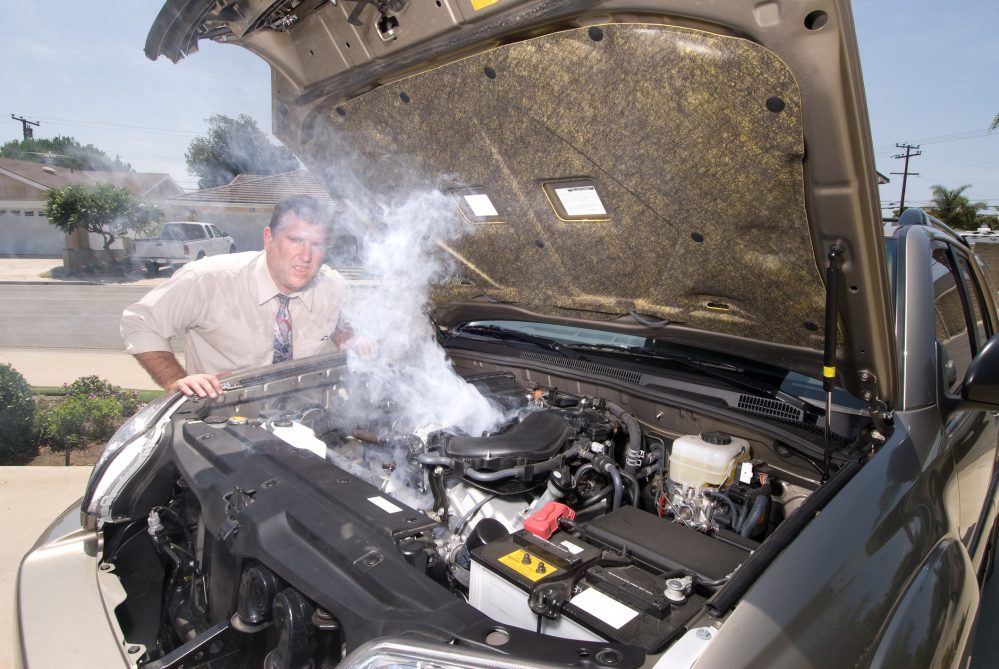
With temperatures now approaching the highest point they’ll be all year, your vehicle’s engine will be feeling the heat for the next couple of months. Luckily, there are ways to combat the sun’s effect on your vehicle to make sure you don’t have an overheating engine to deal with.
Keep an extra bottle of coolant in your car in addition to a water jug. Low coolant levels are a common reason for cars to overheat so being able to quickly top off this fluid can be clutch, as can dousing your hot engine with some water.
Turn off your air conditioning system as soon as you see your temperature gauge move into red territory or a notification light comes on. Running your a/c can put significant strain on your engine so turning it off can help give it a break and cool down itself. You can also turn your heater on to let the excess heat escape your engine – this may cause short-term discomfort for you and your passengers but that’s definitely better than long-term damage to your engine.
Pull over and turn off your engine as soon as the first two steps fail. You should then pop open your hood while still in the driver’s seat if possible to allow the built-up heat to escape. Do NOT attempt to open your hood by hand – wait at least 30 minutes for the engine to cool and then check the coolant tank to see if it’s empty or damaged/leaking.
If your tank is indeed empty or defective, place a cloth over the radiator cap to protect your hand and carefully unscrew it – tipping it away as it opens. Pour in your extra coolant (or water) once the unit has cooled sufficiently. The majority of cars need a 50/50 coolant/water mix so be sure to only drive a short distance if your mix is unbalanced.
If your tank isn’t empty or damaged, your overheating engine is likely the result of electrical or mechanical malfunction and you should call an ASE-certified technician ASAP.

 MENU
MENU